
Butcher block, consisting of individual wooden strips fused together into a sleek slab, is a timeless idea for kitchen countertops. But as any material, butcher block has it advantages and disadvantages, too, and you should consider before installing them. here are some of them with examples.
Pros
Butcher block is one of the more affordable countertops, it’s less expensive than other popular options like stainless steel, glass, concrete, marble, soapstone or limestone. Besides, if you choose a DIY installation, you’ll save even more money.
The butcher block has different varieties and looks, you can pick your own hardwood and grain. You may customize the hue and pattern.
Butcher block’s maintenance isn’t a hard job: for everyday cleaning, scrape off food debris with a plastic spatula, then use a dish sponge saturated in a solution of two cups warm water and one teaspoon dish soap to wipe away the residue. Vinegar works great as a stand-in for soap and water. To banish a stain, sprinkle table salt over the stain, then gently rub it with half of a lemon to remove it. Every 10 years, or as needed when stains grow numerous, use sandpaper to sand away the old sealant. Re-oil the sanded surface to make it look like new. Butcher block can last for 20 years and longer if you follow the maintenance tips and install it right.
Cons
Butcher block is ultra-sensitive to liquid. Wood can gather germs, grow mold, stain, or even warp in shape when exposed to moisture. To counteract these unwanted effects, you’ll need to seal your butcher block countertops immediately following installation. You may also reseal the countertops every month.
Butcher block countertops ding easily, they are vulnerable to scratches and dents. Don’t use butcher block instead of cutting boards! Knife blades can cause uneven wear. If there are some scratches or uneven surfaces, just sand and reseal.
Butcher block expands or contracts as the temperature fluctuates: by roughly one-eighth of an inch in summer and contract by the same amount in the winter. Leave enough room for that otherwise you’ll get cracks.
by Olivia









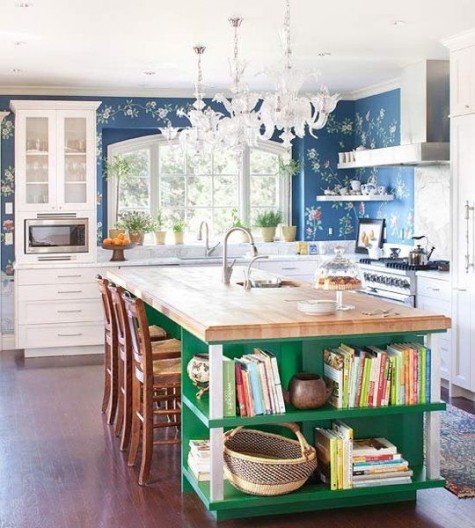




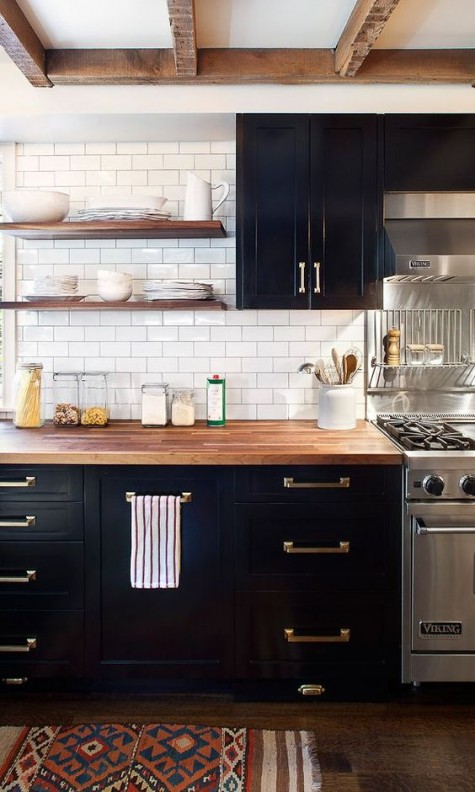






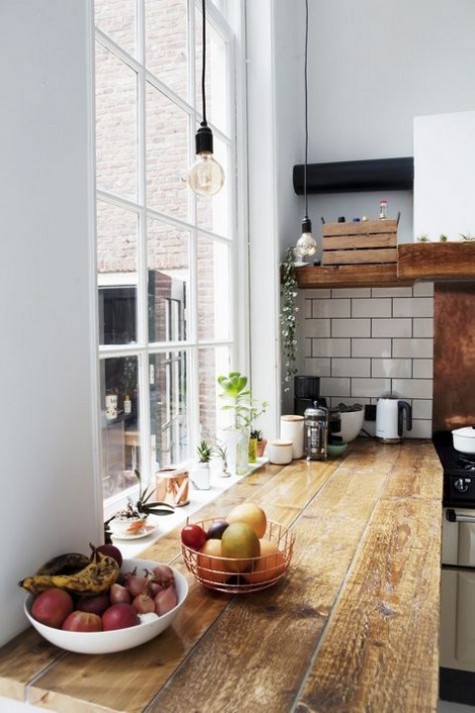

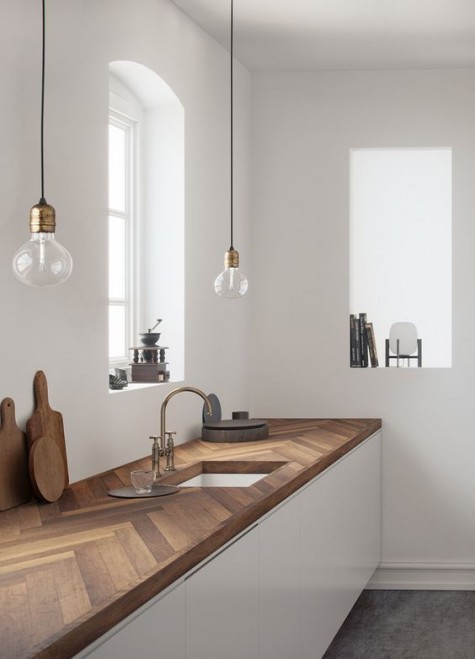




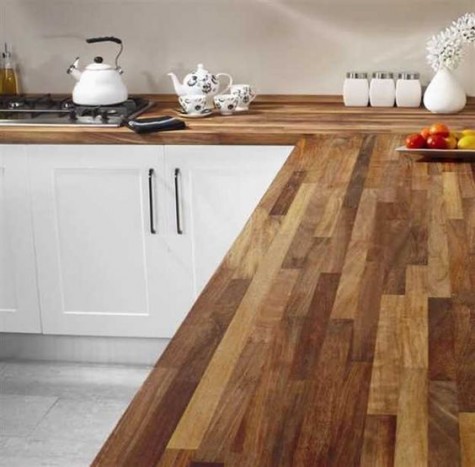
I do not even know how I ended up here, but I thought this post was good. I don’t know who you are but certainly you’re going to a famous blogger if you aren’t already Cheers!|
Cheers!|
Im thankful for the blog.Thanks Again. Really Great.
Really appreciate you sharing this blog article.Really looking forward to read more. Will read on
It’s awesome for me to have a web page, which is valuable in favor
of my knowledge. thanks admin
It as not that I want to duplicate your web-site, but I really like the layout. Could you let me know which style are you using? Or was it custom made?
If you desire to grow your know-how just keep visiting this
web site and be updated with the latest news posted here.
I like the valuable information you provide in your articles.
I’ll bookmark your weblog and check again here regularly.
I am quite sure I will learn plenty of new stuff right here!
Good luck for the next!
Microsoft has plans, especially in the realm of games, but I am not sure I ad want to bet on the future if this aspect is important to you. The iPod is a much better choice in that case.
Wow! Thank you! I continually needed to write on my site something like that. Can I take a portion of your post to my blog?
I found this book within the piles in the local Salvation Army thrift store.
As you can imagine, accent piece is a fairly labor intensive process.
They are in effect my colleagues on the web. https://Jom.fun/
Hello my friend! I want to say that this article is amazing,
nice written and include almost all important infos.
I would like to see extra posts like this . https://apxpills.com/
Thanks designed for sharing such a nice thought, piece of
writing is pleasant, thats why i have read it entirely